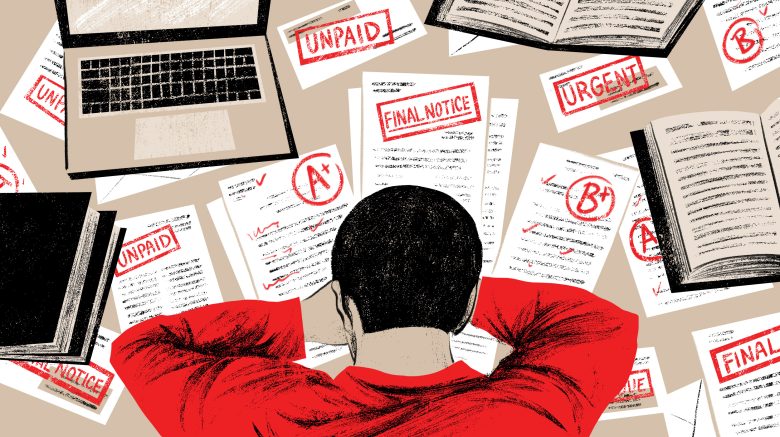When getting divorced, spouses usually get their financial situations completely rearranged. And in most cases, divorcees face financial hurdles due to an increased load on their budget and a lack of preparation for similar situations.
So, you need to realize that free divorce papers and similar divorce hacks will decrease the general waste, but you will still face hardships unless you get prepared thoroughly. PrintableDivorce presents the top common financial divorce issues and possible solutions to guarantee financial security and steadiness before, during, and after divorce.

Source: economictimes.indiatimes.com
Contents
General Property Division Principles
The first step to predicting the financial outcomes of your marriage termination is researching the local law. Depending on your residence, the property division will be guided either by the community property or the equitable distribution principle. For example, if you are to finalize your marriage in Texas, get ready to have your assets divided 50/50. Yet, in some cases, the judge will count on additional circumstances to regulate assets and debt distribution as well.
Anyway, the best thing is to opt for an uncontested divorce and reach an agreement on splitting your assets and debts together with your spouse but not letting the officials decide for you. If your choices don’t contradict the local law, your agreement will be approved and assets and debts divided as you find it comfortable for both of you.
Dividing Real Estate
The most significant issue concerning finances and divorce is usually real estate division. It covers not only your marital house but also summer houses, timeshares, rental properties, and any other real estate.
When splitting real estate, many details are taken into account. For example, a custodial parent will usually keep the marital house, while a business-involved spouse will take business properties.
But sometimes spouses find it difficult to maintain the real estate after divorce, so they decide to sell it. If you are the one, you should also count on the need to cover the expenses before the selling, the pay-off of the remaining mortgage, and the pay for any renovations necessary. Only after that can you share any profit you get from the selling and move on to building your happiness.

Source: nbcnews.com
Dealing with Debts
If you cannot agree on how to deal with your debts, there is also a need to look into the relevant processes too. The first thing to understand is that the divorce agreement doesn’t free you from any debts and obligations. Even if your spouse takes the property with the debt you have to pay off together, you still need to make your share of payments unless you agree differently.
When it comes to credit cards, it depends on to who the card is entitled. If you are the sole owner of the credit card with the debt on it and your partner helps to pay it off, they are not obliged to grant you any money to cover the debts after the divorce as long as they don’t want to. If you have joint accounts and the debs connected with them, you will have to separate both accounts and debts according to the local law in the course of your marriage termination.
Considering Taxes
If you want to predict the financial impact of divorce on your further life, pre-calculating your income and debt distribution is usually not enough. You should also consider taxation since it may change your financial situation significantly.
One spouse commonly benefits more from tax returns than the other. It is usually a custodial parent and the one who keeps the household. Contrastly, a spouse who files for divorce first will have to lose more in the course of taxation connected with the divorce process. So, consulting a specialist about taxation influencing your divorce outcomes is a highly recommended point.

Source: chinadaily.com.cn
Pre-calculating Child and Spousal Support
If you expect the alimony and/or child support to be included in the divorce agreement, discover how it may impact your financial state in general. Most states have specific formulas to help you pre-calculate both alimony and child support you can expect to receive or pay to your spouse so that you can foresee the impact on your budget in the nearest future.
Another point to bear in mind is that spousal support undergoes taxation in some states. If you are the one to get alimony, you may have to pay taxes on it. But if you pay the spousal support to your ex, you can get the tax returns on your payments. Meanwhile, in most states, child support payments usually have no taxation requirements connected.
Counting on Retirement Plan
If you expect any financial problems after divorce, you can also count on your partner’s retirement plan if you don’t have one. And if you live in Texas, you will be commonly entitled to half of it.
If there are enough funds, you may cover any debts or use them for your living. Still, study the retirement plan details to avoid any penalties for early withdrawal. If you receive a small amount, you’d better plan how to invest in getting a bigger profit in the nearest future or gathering a significant pension plan for yourself.

Source: bigcitizenhub.org
Getting Professional Help
Financial issues are of high importance when it comes to divorce outcomes. There shouldn’t be any shame or hesitation whether ask for help. It is highly recommended to cooperate with professional evaluators, financial advisors, certified divorce financial analysts, and other relevant specialists. This will enable you to predict the financial aftermath of the marriage termination and create the best suitable plan to guarantee your economic stability in the nearest future.
